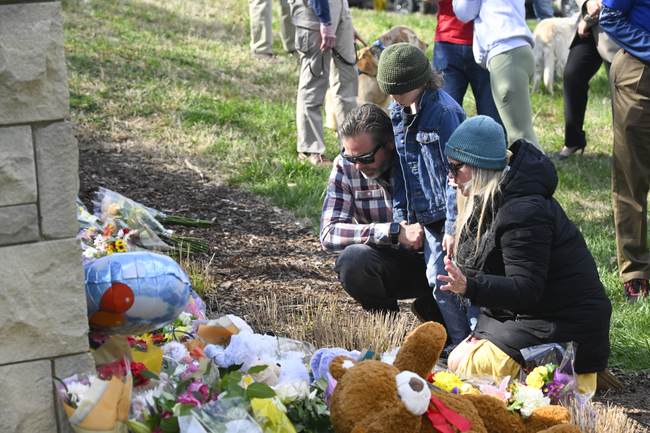We support our Publishers and Content Creators. You can view this story on their website by CLICKING HERE.

It was the worst nightmare for parents and their children. As a gunman roamed the halls of Apalachee High School in Winder, Georgia, kids took out their cell phones and texted heartbreaking messages to their parents about an active shooter at the school. They said goodbye to their loved ones, thinking they were going to die.
Advertisement
According to a National Parents Union survey conducted in February, the top reason parents want their child to have a cell phone in school is in the case of an emergency either at home or while in class.
But school shootings are incredibly rare, despite what the media would have us believe. And according to many experts, kids with phones may actually be in more danger during an emergency.
Ken Trump, president of National School Safety and Security Services points out the real-world drawbacks of kids with phones in an active shooter situation or any other emergency.
“If you have 20 kids in a classroom and they’re texting, calling parents, livestreaming — they’re not paying full attention to the directions of adults and not being fully situationally aware of things they may need to quickly do to save their lives,” he said. “You have seconds to follow directions and move locations.”
Phones can create other hazards too, he said. Their ringing or buzzing might draw unwanted attention to classrooms where people are trying to hide. Having an influx of students making calls home or to 911 at the same time can overload phone networks or the emergency response system. And having parents race to school to check on their child after they receive an alarming text could block traffic, meaning emergency personnel can’t get in or out.
“Parents are going to come to the school anyway, but cellphones expedite that flocking to the school,” Trump said, calling phones more of “an emotional security blanket for parents” than something that actually makes kids safer.
Advertisement
Is there an alternative to kids being allowed cell phones in class just in case an active shooter situation or some other emergency arises? In fact, there is.
Apalachee High School had a new alert system installed just days before the shooting. The CrisisAlert system, designed by Centegix includes a device the size of an ID badge. The badge has a button that, when pressed, notifies school administrators and first responders of an emergency.
The company works with school districts and law enforcement agencies to integrate the system into their current safety procedures and automate as much as possible.
Barrow County Sheriff Jud Smith told CNN Apalachee High School had the system for less than a week and had tested it for the first time only the day before the shooting.
He called the timing, “God’s intervention.”
Two students and two teachers were killed during the shooting Wednesday and nine others were injured. As the nation reels from yet another deadly school shooting – the 45th in the country so far this year – experts and law enforcement officials say this latest tragedy underscores the role technology can play in helping to reduce police response time and potentially prevent further bloodshed.
Allowing phones in class so that students can call home in case of a school shooting is a poor reason to acquiesce to the desire to assuage the fears of parents, especially given the rarity of school shootings.
Advertisement
As for the kids, they’re so used to seeing videos of tragedies on their phones that their first thought in an emergency is to record it rather than run away from it.
“We as a society have not done a very good job of really fighting against that notion and saying to kids, ‘You move away from the danger,’ whether it’s a tornado, a vicious dog, a fight, whatever it is,” she said. “Our culture says you run toward it and you film it.”
American schoolchildren got along reasonably well until the early 21st century when phones became an appendage rather than a technological device. Is the remote possibility of an active shooter situation at school reason enough to allow the distractions that interfere with educating kids?
The marginal benefits of phones in school for emergencies are far outweighed by the harm they cause.

 Conservative
Conservative  Search
Search Trending
Trending Current News
Current News 







